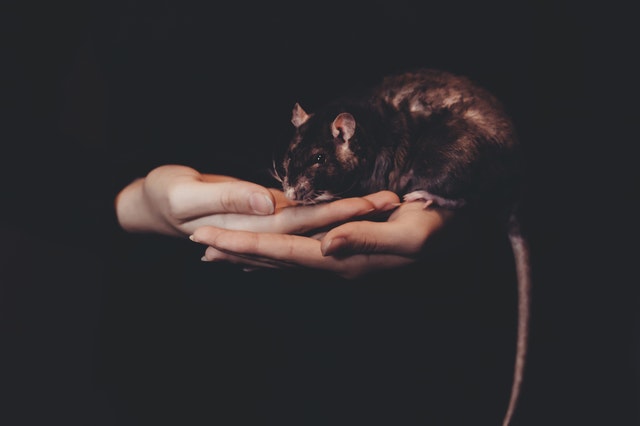When you think about emotional support animals, the animal that pops into your head is probably a dog or maybe a cat. They are not the only creatures that can provide a great deal of emotional support, though. While something like a grizzly bear isn’t going to work as an ESA, any type of domesticated animal may qualify. Because they do not require specific training, it is much easier for an animal to qualify. Dogs and cats are the most common options, but your ESA can be just about any type of pet.
Does that mean that rats can be emotional support animals? Absolutely! In fact, pet rats are perfectly suited for the job. Read below for reasons why a rat makes for a great emotional support animal.
Are you ready to make your rat an emotional support rat? Complete the ESA Questionnaire in the link below and qualify for your ESA Rat letter now.
1. Rats Are Highly Intelligent
Intelligence may not be the first thing you think of when you think about emotional support rats, but they are actually the smartest type of rodent. They also have a higher intelligence level than many other members of the animal kingdom. They can be trained to live neatly in your home and enjoy their own food instead of raiding your pantry. They can learn how to do tricks like rolling over, shaking hands, and even dancing. Rats can even be trained to use a designated potty much like a cat.
They quickly become familiar with their owners and form strong bonds with them. Which brings us to the next reason why rats are great emotional support animals…
2. They Are Extremely Social
An emotional support rat isn’t the type of pet that will want to spend its entire day hiding out in a cage. They are highly social, and they love spending time with their human companions. They love to cuddle and bond with their owners, and they quickly evolve from pets into best friends. Their loving nature helps alleviate feelings of loneliness, and they always seem to know how to bring a smile to someone’s face. This makes rats the perfect type of ESA!
Their intelligence and social nature also means that they love to play. Learning tricks, solving puzzles, playing with toys, and completing obstacle courses are just a few of a pet rat’s favorite pastimes. This provides endless entertainment for the rat and the owner alike, and it can really help cheer someone up when dealing with depression or anxiety.

3. Rats Are Small and Easy to Care For
Unlike many other pets – like dogs – rats are small. And their small size makes them extremely easy to house and cared for. Even if your home is a tiny studio apartment in the heart of a major metropolitan area, you likely have plenty of room for a rat roommate. Look for a high-quality cage with multiple levels to give your emotional support pet plenty of room to roam and explore without taking up a lot of floor space in your home. Provide a nest, some comfy bedding, and food and water dishes, and you are good to go.
Their small size also means that it’s easy to ensure that they get plenty of exercise without worrying about needing to go for long walks in the rain and snow. Exercising indoors is more than enough (though your rat will enjoy if you take it outside from time to time). Set up an obstacle course, engage in a rousing game of fetch, or take them for short runs around your living room daily, and their exercise needs will easily be met.
4. They Do Well in Pairs
What’s better than one rat? Two! Due to their social nature, wild rats live in colonies. When keeping them as pets, having a pair rather than just one is highly advised. This helps ensure that the animals remain happy. Having more than one is also more fun for the owner. Keeping two (or more) is just as easy as caring for one, but having the opportunity to watch multiple rats interact with each other is a lot more fun. Just make sure if they are the same sex or the male is neutered to prevent unwanted litters. When you share your home with two or three rats, you can wave loneliness goodbye and spend countless hours watching them play together.
5. Emotional Support Rats – The Bottom Line
Rats have gotten an unfair reputation for being dirty and making poor pets. In reality, domesticated rats are loving, intelligent creatures that make excellent pets. These qualities – and many others – also make them wonderful emotional support animals that are well-suited to living in virtually any environment.
How to Qualify for an Emotional Support Rat
Qualify for your ESA letter today.
With Love and Support










How is it a esa if u can’t take it in a store when you need it
ESAs only have rights for housing under federal law. They are not the same as service dogs which have greater public access rights.
What training and paper work do they need to qualify As service rats?
Rats cannot be considered service animals. However, they can qualify as an ESA. In order to qualify as an ESA, you must have an ESA letter from a licensed mental health professional.
To get connected to a licensed mental health professional that may be able to assist you, you may complete the questionnaire in the link below.
https://esadoctors.com/esa-questionnaire/
Can I take my rat with me to stores where I have the hardest time mentally and need my esa?
Unfortunately, emotional support rats do not have public access rights.